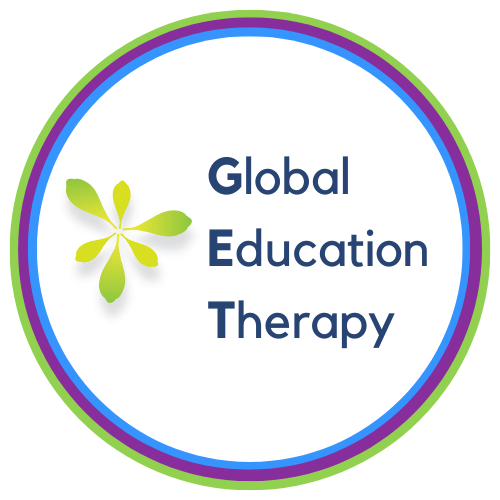Shining a Light on ADHD: Join the Awareness Month Movement
Introduction: Shedding Light on ADHD Awareness Month and its Importance
ADHD is a neurodevelopmental disorder that affects both children and adults, impacting their ability to concentrate, regulate impulses, and manage daily tasks effectively. By dedicating an entire month to ADHD awareness, we aim to create a supportive environment that encourages empathy, compassion, and acceptance for individuals living with this condition.
The Connection Between ADHD and Speech Challenges: Exploring Communication Difficulties
Speech challenges in individuals with ADHD can manifest in various ways. Some may struggle with articulation, finding it difficult to pronounce certain sounds or words clearly. Others may have trouble organizing their thoughts and expressing themselves coherently, leading to disjointed or rambling speech patterns. Additionally, individuals with ADHD may exhibit difficulties in maintaining attention during conversations, making it challenging for them to actively listen and respond appropriately.
These communication issues can have a profound impact on various aspects of an individual's life, including academic performance, social interactions, and self-esteem. It is important to approach these challenges with empathy and understanding, recognizing that they are not indicative of a lack of intelligence or capability. By gaining a deeper understanding of how ADHD impacts language development, we can provide appropriate support and interventions for those affected.
Understanding ADHD in Children and the Role of Occupational Therapy
Occupational therapists play a crucial role in helping children with ADHD by utilizing various strategies tailored to their specific needs. Through the power of play, occupational therapy allows children to engage in activities that promote skill-building, self-regulation, and improved attention span.
Sensorimotor strategies employed by occupational therapists help children develop essential motor skills, coordination, and body awareness. These strategies enhance their ability to navigate daily tasks more efficiently, such as dressing, eating, and writing. Play-based interventions have proven to be highly effective in helping children with ADHD improve their executive function skills, attention, and focus.
GET’s occupational therapists work closely with families and educators to implement environmental modifications that create supportive learning environments for children with ADHD. By making adjustments like reducing distractions or implementing visual schedules, these professionals empower children to thrive academically and socially.
The Link Between ADHD and Reading Difficulties: Navigating Literacy Challenges
Dyslexia: Recognizing the symptoms of dyslexia in individuals with ADHD is crucial for understanding their specific needs. Difficulties in reading, spelling, and decoding words are common indicators. Tips that can make a significant difference:
Creating a structured and organized learning environment can help minimize distractions and enhance focus.
Utilizing multi-sensory teaching methods, such as incorporating visual aids or hands-on activities, can also be beneficial.
Reading Comprehension: ADHD can make it difficult to stay focused while reading, leading to distractions and a lack of engagement with the text. This can result in missed details, incomplete understanding, and frustration. However, there are strategies you can employ to overcome these obstacles.
Find a quiet space free from distractions.
Break down the reading material into smaller sections or chapters.
Using active reading techniques
Seek support from GET’s reading specialists
Understanding How ADHD Can Impact Learning: Insights and Strategies
Children with ADHD often struggle with maintaining focus, staying organized, managing time effectively, and completing tasks. These difficulties can lead to academic underachievement and frustration for both the child and their parents.
To assist kids with ADHD, GET’s tutors can employ various strategies tailored to their specific needs such as creating a structured and predictable environment during tutoring sessions to help minimize distractions and improve focus, and breaking down tasks into smaller, manageable steps.
Additionally, tutors should incorporate multi-sensory teaching techniques that engage different senses such as visual aids or hands-on activities. This approach helps cater to different learning styles and enhances information retention.
By implementing these strategies and providing ongoing support, tutors can make a significant positive impact on the academic progress of children with ADHD while promoting their overall well-being in the educational setting.
How Can GET Help Support My Child with ADHD?
At Global Education Therapy, we understand the unique challenges that children with ADHD face and are committed to providing comprehensive support. Our team of highly skilled professionals, including speech-language pathologists, occupational therapists, educators, and reading specialists, work collaboratively to create an individualized plan tailored to your child's specific needs.
GET SLPs are experienced in helping children with ADHD improve their communication skills. Through targeted interventions and therapy techniques, they can assist your child in developing effective verbal and nonverbal communication skills.
GET OTs focus on enhancing your child's sensory processing abilities and self-regulation skills. They provide strategies and activities to help your child manage their attention span, improve focus, and develop fine motor skills.
GET Educators work closely with parents and teachers to understand the child's individual challenges and develop personalized strategies accordingly. Regular communication allows for consistent support across different environments.
GET Reading Specialists are trained in implementing evidence-based strategies to create a supportive environment that fosters engagement, motivation, and academic success
By combining the expertise of our multidisciplinary team members, we ensure a holistic approach to support your child's overall development. We are dedicated to empowering your child with the necessary tools and strategies needed for success both inside and outside the classroom.
Conclusion: Spreading Compassion and Empathy to Create a Supportive Environment
In conclusion, spreading compassion and empathy towards individuals with ADHD is crucial in creating a supportive environment. By increasing ADHD awareness and fostering understanding, we can break down stigmas and misconceptions surrounding this condition.
Together, let us strive to educate ourselves and others about ADHD, encouraging empathy and understanding. Let us be mindful of our words and actions, seeking to uplift rather than judge. Through small acts of kindness and genuine support, we can make a significant difference in the lives of those with ADHD.



